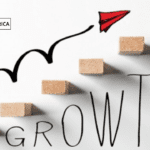Building a startup anywhere in the world is a gamble. But in Africa—where infrastructure gaps, limited funding, and unpredictable regulatory shifts collide—the challenge is magnified.
Many startups launch with bold visions only to discover that their original business model won’t survive the realities of the market. That’s where the pivot comes in.
A pivot is not a failure; it’s a strategic shift. It’s when founders recognize what isn’t working, adapt quickly, and redirect their resources toward a more sustainable path.
Some of the most inspiring stories of African innovation are not about the original idea, but about the transformation that followed.
In this article, we’ll dive into 8 African startups that pivoted successfully, unpacking their journeys, lessons, and strategies.
Nature of Startup Pivots in Africa
Understanding pivots in context
In Silicon Valley, a pivot might mean tweaking the target audience or adjusting features of a product. In Africa, pivots are often more dramatic.
The underlying challenges—such as unreliable power grids, limited broadband penetration, and varying consumer behaviors—mean that minor adjustments may not be enough to save a business.
Instead, pivots often involve reimagining the entire model to suit realities on the ground.
For example, a company that initially envisioned itself as a digital marketplace may discover that its customers do not have consistent access to the internet or affordable smartphones.
Rather than abandon the idea altogether, the startup may pivot toward a business model that emphasizes offline engagement while still using technology to streamline backend operations.
This kind of radical shift is what has defined many of the most compelling African startup stories.
Why African pivots stand out
African pivots stand out because they often require startups to address fundamental infrastructure gaps.
A company cannot simply build a service on top of broken systems; it must sometimes build the system itself. Twiga Foods learned this when it realized that a digital marketplace for farmers could not function without a logistics backbone.
Flutterwave recognized the same reality when it became clear that offering a consumer app without addressing fragmented banking systems was a recipe for frustration.
These pivots also reveal the importance of cultural and social contexts. African consumers may value trust, personal relationships, or offline interactions more than flashy tech features.
Startups that succeed in pivoting are those that thoroughly examine these realities and adapt accordingly.
8 African Startups that Pivoted Successfully
1. Flutterwave
When Flutterwave was founded in 2016, its initial ambition was to create a simple consumer-facing app for money transfers. The idea was compelling: Africa needed seamless digital payment options that could bypass cumbersome banking processes.
However, the reality quickly set in. Every country had its own fragmented financial system. Regulatory requirements varied widely. Integrating banks, mobile money operators, and card networks into a unified consumer app proved not just challenging but nearly impossible to scale.

The pivot
The Flutterwave team recognized that solving consumer payments directly was too complex without a robust foundation. They pivoted toward building infrastructure for businesses.
Instead of focusing on individual consumers, they shifted to creating a payments platform that allowed companies to accept and send money across borders, integrating seamlessly with banks, mobile wallets, and global payment systems.
This shift allowed Flutterwave to solve a bigger problem: enabling African businesses to transact globally and locally without friction.
Results of the pivot
Flutterwave’s pivot transformed it into one of Africa’s leading fintech companies. By 2022, it had processed over 200 million transactions worth more than $16 billion.
Its partnerships with PayPal, Visa, and global merchants made it not just a regional player but a bridge between African businesses and the world.
The consumer app never reached scale, but the pivot positioned Flutterwave as a unicorn valued at over $3 billion, proving that focusing on infrastructure was the winning bet.
Read also: Building a B2B SaaS Company for African SMEs: Complete 2026 Playbook
2. Yoco
South Africa has a large population of small and medium-sized enterprises (SMEs), many of which had long been excluded from digital payments.
Yoco initially launched with a narrow focus: providing mobile point-of-sale devices that allowed small businesses to accept card payments affordably.
The model was straightforward and solved a clear problem. However, as Yoco scaled, it became clear that the merchants they served needed more than just card readers.
The pivot
Yoco realized that merchants struggled not only with payment acceptance but also with access to credit, inventory management, and financial insights.
Rather than remain a one-product company, Yoco pivoted into a multi-service financial platform. It introduced business loans, digital tools for managing sales, and services that gave SMEs visibility into their financial health.

Results of the pivot
The pivot worked. Yoco grew to serve more than half a million businesses across South Africa and expanded into other markets.
Its story underscores the reality that African entrepreneurs often need to move beyond point solutions and create ecosystems.
By layering additional services on top of its original offering, Yoco built long-term relationships with its customers and became a crucial partner in their growth.
See Also: Inside Yoco’s Journey: Powering the Future of SME Payments in SA
3. Sokowatch (Now Wasoko)
Sokowatch began as an e-commerce platform in Kenya, designed to connect informal retailers with suppliers through a digital marketplace. The concept was inspired by the rise of e-commerce globally, and the hope was that shopkeepers could use smartphones to order inventory directly from manufacturers.
The pivot
But the company soon realized that informal retailers, who account for up to 80 percent of Africa’s retail market, faced more immediate problems.
They didn’t care about browsing online catalogs; they cared about reliable stock deliveries and access to credit.
Sokowatch pivoted into a B2B logistics and distribution company, investing in warehouses, delivery fleets, and a system that provided retailers with working capital.
The company rebranded to Wasoko to reflect its new identity.
Results of the pivot
Wasoko’s transformation paid off. By addressing retailers’ actual pain points—inventory shortages and lack of financing—it scaled rapidly across East and West Africa.
The company secured over $125 million in funding, becoming one of Africa’s fastest-growing B2B commerce startups.
Its pivot demonstrates the importance of listening closely to customers and being willing to abandon models that do not resonate with the realities of the market.
4. Twiga Foods
Twiga Foods launched in Kenya in 2014 with a noble vision: connect farmers directly with retailers, eliminating exploitative middlemen and ensuring better prices for both sides. The company created a digital marketplace that allowed farmers to list their produce and retailers to place orders.
The pivot
The idea worked in theory but not in practice. Farmers lacked the means to transport goods reliably, and retailers could not depend on sporadic deliveries.
Twiga quickly realized that a digital platform without physical logistics could not deliver consistent value.
The company pivoted to become an end-to-end supply chain operator, building aggregation centers, fleets of delivery trucks, and storage facilities.
Results of the pivot
Twiga Foods is now one of Africa’s leading agritech companies, having raised over $100 million from global investors. By taking control of logistics, the company ensured quality, reliability, and scale.
The pivot also positioned Twiga as a critical player in Africa’s food security agenda, highlighting how solving infrastructure problems can unlock both growth and impact.
Read Also: How to Build Trust in African Consumer Markets Without Big Budgets
5. Paga
Founded in Nigeria in 2009, Paga set out to provide a mobile wallet solution for the unbanked population.
Its goal was to allow people to send and receive money digitally without needing a bank account.
Early adoption was encouraging, but scaling a wallet in Nigeria proved challenging due to stiff competition from banks and telecom operators.
The pivot
Paga realized that to achieve widespread adoption, it could not limit itself to being just a wallet.
The company pivoted toward building an entire ecosystem of financial services, including agent banking networks, APIs for developers, and partnerships with banks and global companies.
This allowed Paga to reach users who were excluded from the formal banking system while also embedding its technology into broader financial infrastructure.
Results of the pivot
Today, Paga has processed transactions worth over $20 billion and built a network of more than 40,000 agents across Nigeria. Its pivot reflects a common African truth: success in fintech requires building around the customer with multiple access points rather than betting everything on a single product.
6. Wave
Founded in 2018 in Senegal, Wave began as a low-cost mobile money transfer service, aiming to undercut the high transaction fees charged by incumbents like Orange Money and MTN Mobile Money.
Their mission was to make financial services affordable for everyone, starting with simple transfers and cash-in/cash-out services through agents.
The pivot
While adoption grew quickly, Wave discovered that users wanted more than just cheap transfers. They wanted a platform that could handle multiple aspects of daily life—bill payments, airtime purchases, merchant payments, and eventually digital banking.
Wave pivoted from being only a money transfer service to positioning itself as a super-app for financial services. This meant integrating diverse features into one seamless experience, much like Alipay or M-Pesa, but tailored to Francophone Africa.

Results of the pivot
The pivot made Wave the first unicorn in Francophone Africa, raising $200 million in 2021 at a $1.7 billion valuation.
Its expansion into Côte d’Ivoire and other West African markets showed that a bold pivot toward an all-in-one ecosystem was exactly what customers needed.
Today, Wave competes head-on with telecom giants and continues to redefine mobile money in a region where financial inclusion remains low.
7. Paymob
Paymob, founded in 2015 in Cairo, began as a payment gateway designed to help e-commerce businesses in Egypt process online transactions.
At the time, Egypt’s e-commerce ecosystem was growing, but payment infrastructure was weak and fragmented. Paymob’s initial goal was to fill that gap.
The pivot
The team soon realized that online-only payments excluded the majority of Egypt’s businesses, which operated offline and relied on cash.
To scale, Paymob pivoted into a full-stack fintech platform, offering point-of-sale solutions, QR-based payments, and APIs for third-party developers.
This pivot expanded their reach beyond online retailers to include small brick-and-mortar merchants, creating a much larger addressable market.
Results of the pivot
Paymob became one of the fastest-growing fintech startups in North Africa, raising over $50 million in funding and serving tens of thousands of merchants.
Its success shows how startups in emerging markets must often pivot to include offline businesses, not just digital-first ones.
By addressing both sides of the market, Paymob created a model that bridges Egypt’s cash-heavy economy with the digital future.
See Also: Entrepreneur’s Guide to Recruiting First Employees in Africa
8. MAX.ng
MAX.ng, founded in Lagos in 2015, launched as a bike-hailing platform. The goal was to formalize the informal okada (motorcycle taxi) industry by offering safe, tech-enabled rides. For a time, it worked—Lagosians adopted the service enthusiastically, and MAX.ng raised early funding to scale.
The pivot
In 2020, the Lagos state government banned commercial motorcycles in much of the city, effectively crushing the original model overnight. Instead of folding, MAX.ng pivoted.
The company transformed into a mobility-as-a-service and logistics platform, investing heavily in electric motorcycles, delivery services, and vehicle financing for drivers.
Results of the pivot
The pivot not only kept MAX.ng alive but positioned it as a pioneer in Africa’s green mobility revolution.
By 2021, MAX.ng had raised over $30 million and began rolling out electric vehicles in Nigeria, Ghana, and beyond.
Its story is a prime example of how regulatory shocks can force startups to reinvent themselves and how resilience can turn crisis into opportunity.
Lessons from African Startups that Pivoted Successfully
The stories of Flutterwave, Yoco, Wasoko, Twiga, and Paga illustrate several recurring themes.
Follow the customer, not just the idea
African startups that pivot successfully do so because they prioritize customers over their original vision. Sokowatch realized that shopkeepers didn’t need e-commerce apps; they needed reliable supply and credit. Twiga saw that farmers didn’t just need access to markets; they needed logistics that worked.
Infrastructure can’t be ignored
Many pivots in Africa involve building supply chains, payment systems, or agent networks because these structures don’t exist at the necessary scale. Startups that try to grow without addressing infrastructure often hit roadblocks that force reinvention.
Partnerships multiply impact
Flutterwave’s success was tied to its decision to integrate with PayPal and Visa rather than trying to compete with them. Paga’s ecosystem grew because it worked with banks and regulators instead of attempting to bypass them. Collaboration, rather than isolation, has proven to be a powerful lever.
Scaling requires expanding beyond core services
Yoco began with a card reader, but its growth came from layering services like loans and management tools. Similarly, Paga grew because it became more than just a wallet. Entrepreneurs who want to achieve continental impact must think of themselves as ecosystem builders rather than product owners.
Read Also: Top 7 Highest-paying Tech Jobs in Nigeria This Year
Conclusion
In Africa, the startup journey rarely goes in a straight line. The most inspiring companies are those that launched with a bold idea but were humble and flexible enough to change course when reality demanded it.
So, do not fall in love with your idea; fall in love with the problem you are solving. If your first solution doesn’t work, pivot with courage.
The African market rewards those who adapt, and often the real success begins only after the pivot.
If you are building a startup in Africa today, the stories in this article should encourage you to remain flexible and resilient.
Your first model may not survive contact with the market, but with persistence and the right pivot, your startup could become one of the next great African success stories.
Comment and follow us on social media for more tips:
- Facebook: Today Africa
- Instagram: Today Africa
- Twitter: Today Africa
- LinkedIn: Today Africa
- YouTube: Today Africa Studio
















